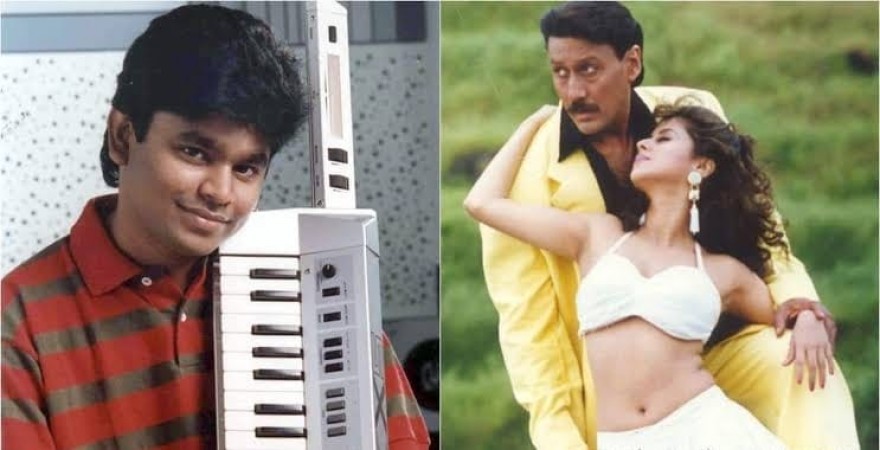
A.R. Rahman is recognized as a legend in the illustrious history of Indian cinema and is renowned for his unrivaled musical brilliance. He had already made a name for himself in the South Indian film industry with his ground-breaking compositions, but his entrance into Hindi cinema marked a turning point in Bollywood's music scene. A.R. Rahman's debut as a music director with the 1995 Hindi film "Rangeela" not only introduced a new musical movement but also served as a milestone for Rahman's career. This article examines A.R. Rahman's career and the influence of "Rangeela" on Bollywood music.
It's critical to comprehend A.R. Rahman's meteoric rise in the Indian music industry before delving into "Rangeela." He was given the name Allah Rakha Rahman after converting to Islam along with his family. He was born as A. S. Dileep Kumar. When he wrote jingles and background music for commercials and documentaries in the late 1980s, he began his career as a composer. The attention of music enthusiasts was drawn to his distinctive fusion of traditional Indian music with electronic and world music elements.
With the release of the Mani Ratnam-directed Tamil movie "Roja" in 1992, Rahman finally found success. Not only did the "Roja" soundtrack launch him to fame, but it also ushered in a new musical era in Indian cinema. It demonstrated Rahman's talent for fusing various musical genres together invisibly to produce a sonic environment that cut across boundaries.
The success of A.R. Rahman in the South Indian film industry wasn't lost on Bollywood. The soundtrack for the well-liked Hindi-dubbed version of "Roja," which the music master had already created, was already complete. However, "Rangeela" marked his first original Hindi film music direction outing.
The romantic comedy-drama "Rangeela," which was directed by Ram Gopal Varma, was a smash hit in Bollywood. The movie, which starred Aamir Khan, Jackie Shroff, and Urmila Matondkar, chronicled the career of a young woman in the movie business. Rahman's job was to compose a musical score that would go well with the engaging story in the movie.
The "Rangeela" soundtrack was nothing less than a musical extravaganza. It contained a diverse collection of songs that crossed genres and mesmerized listeners. Rahman demonstrated his adaptability and mastery of various musical genres with everything from the pounding beats of "Rangeela Re" to the sultry melody of "Tanha Tanha."
Not only was the music in "Rangeela" of the highest caliber, but the sound design was also unique. Rahman added contemporary electronic elements to the songs, giving them a modern, fresh sound. His innovative use of technology along with conventional Indian instruments resulted in an appealing fusion.
"Rangeela" turned out to be a game-changer for Bollywood music as well as A.R. Rahman. The movie's soundtrack quickly rose to fame, receiving praise from critics and dominating music charts. It created new guidelines for film music and raised the bar for originality and creativity.
The song "Hai Rama" was one of the album's defining moments. This passionate duet, performed by Hariharan and Swarnalatha, demonstrated Rahman's capacity to infuse depth and emotion into his compositions. The song is still regarded as a classic and is renowned for its eerie melody and stirring lyrics.
"Kya Kare Kya Na Kare" was another excellent song. It quickly became an anthem for the generation's youth thanks to its pulsating beats and contagious rhythm. The song gained momentum thanks to Udit Narayan's upbeat performance, making it a favorite on the dance floor.
The movie's theme song, "Rangeela Re," was a jubilant celebration of color, dance, and joy. It became a hit right away thanks to the vibrant vocals of Udit Narayan and the upbeat Rahman composition. The song's catchy chorus and upbeat choreography made it a spectacular sight and sound.
The enormous success of the soundtrack was proof of A.R. Rahman's talent for writing music that cut across linguistic and cultural boundaries. It gave Hindi cinema a modern, international sound that appealed to viewers everywhere.
Along with being A.R. Rahman's Hindi debut, "Rangeela" brought him widespread acclaim and recognition. In recognition of his work on "Rangeela," he won his first Filmfare Award for Best Music Director, firmly establishing his place among Bollywood's most renowned composers. Rahman's innovative music for the movie helped to usher in a new era of Hindi film music.
The success of "Rangeela" gave A.R. Rahman the opportunity to work with eminent Hindi film producers and actors. His subsequent works, such as "Dil Se," "Lagaan," and "Rang De Basanti," demonstrated his adaptability and talent for crafting soul-stirring melodies.
A.R. Rahman's "Rangeela" was nothing short of a musical revolution when it made its debut in the Hindi film industry. The movie's soundtrack not only perfectly encapsulated the mood of the picture but also revolutionized how Bollywood music should sound. Rahman's cutting-edge compositional methods, technological innovations, and fusion of various musical genres left a lasting impression on the field.
"Rangeela" marked a turning point in the illustrious career of A.R. Rahman and paved the way for his continued supremacy in the Indian music industry. One of India's greatest musical talents, he has cemented his legacy by producing music that crosses borders and connects with listeners all over the world.
As we commemorate the legacy of "Rangeela," we are reminded of the transformative power of music and how a single soundtrack can completely alter a sector of the entertainment industry, leaving an impact that is still felt by music lovers today.
Celebrities Who Struggled With Alcoholism: A Heartfelt Look